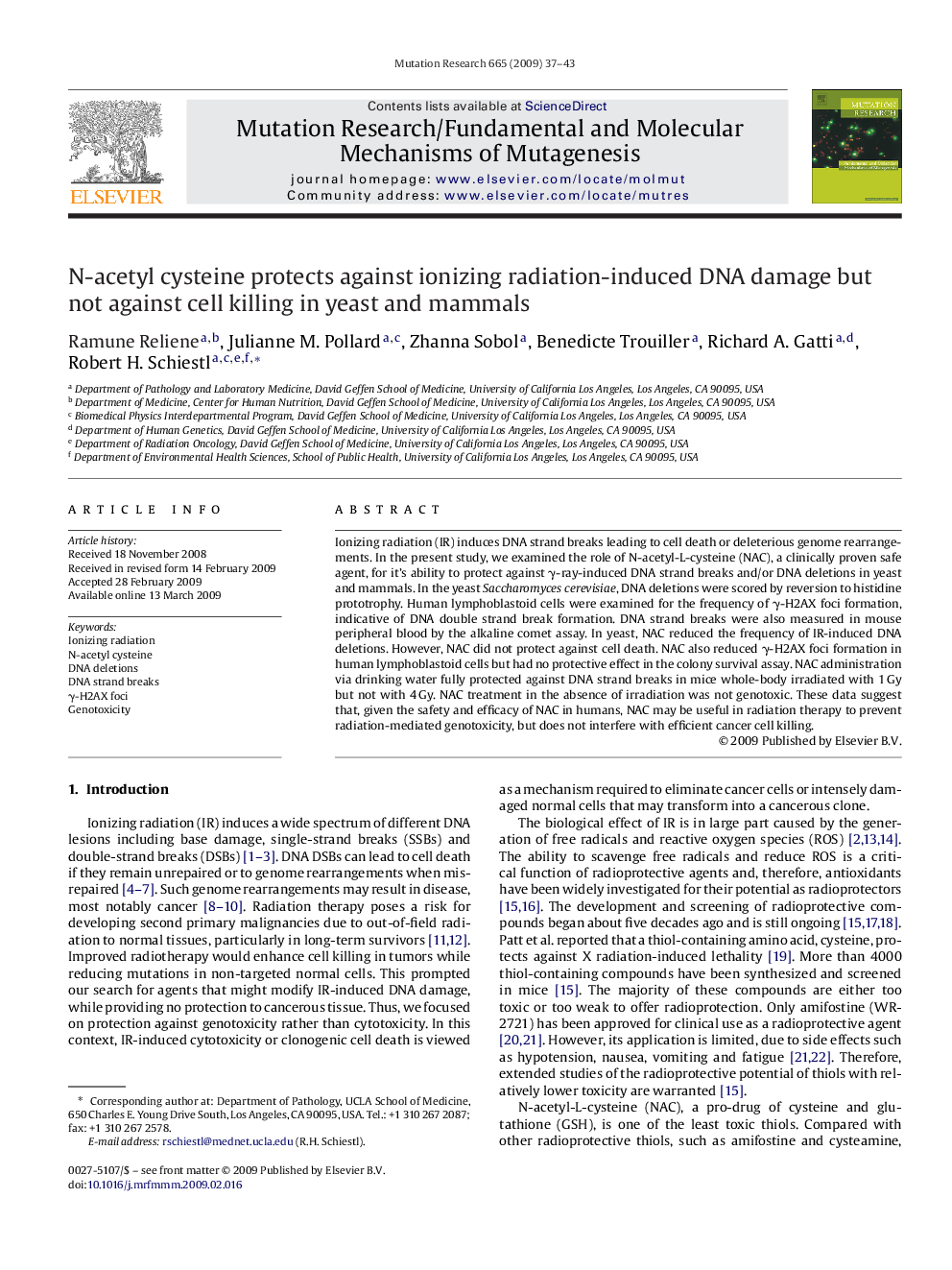| کد مقاله | کد نشریه | سال انتشار | مقاله انگلیسی | نسخه تمام متن |
|---|---|---|---|---|
| 2146978 | 1548386 | 2009 | 7 صفحه PDF | دانلود رایگان |

Ionizing radiation (IR) induces DNA strand breaks leading to cell death or deleterious genome rearrangements. In the present study, we examined the role of N-acetyl-L-cysteine (NAC), a clinically proven safe agent, for it's ability to protect against γ-ray-induced DNA strand breaks and/or DNA deletions in yeast and mammals. In the yeast Saccharomyces cerevisiae, DNA deletions were scored by reversion to histidine prototrophy. Human lymphoblastoid cells were examined for the frequency of γ-H2AX foci formation, indicative of DNA double strand break formation. DNA strand breaks were also measured in mouse peripheral blood by the alkaline comet assay. In yeast, NAC reduced the frequency of IR-induced DNA deletions. However, NAC did not protect against cell death. NAC also reduced γ-H2AX foci formation in human lymphoblastoid cells but had no protective effect in the colony survival assay. NAC administration via drinking water fully protected against DNA strand breaks in mice whole-body irradiated with 1 Gy but not with 4 Gy. NAC treatment in the absence of irradiation was not genotoxic. These data suggest that, given the safety and efficacy of NAC in humans, NAC may be useful in radiation therapy to prevent radiation-mediated genotoxicity, but does not interfere with efficient cancer cell killing.
Journal: Mutation Research/Fundamental and Molecular Mechanisms of Mutagenesis - Volume 665, Issues 1–2, 1 June 2009, Pages 37–43